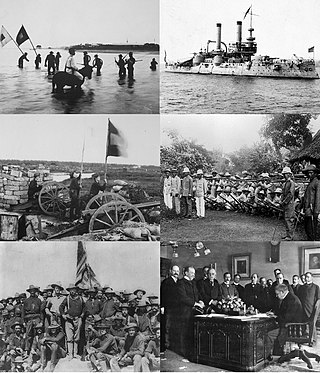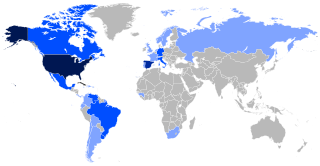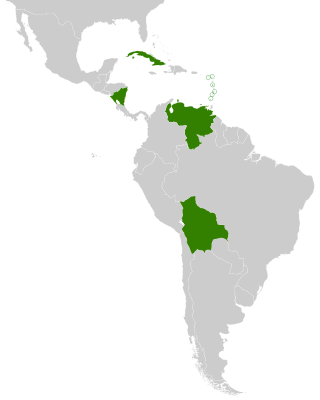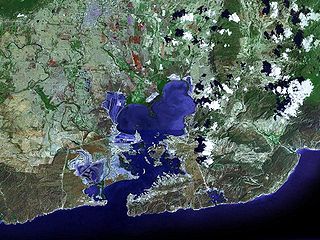The island of Cuba was inhabited by various Amerindian cultures prior to the arrival of the explorer Christopher Columbus in 1492. After his arrival, Spain conquered Cuba and appointed Spanish governors to rule in Havana. The administrators in Cuba were subject to the Viceroy of New Spain and the local authorities in Hispaniola. In 1762–63, Havana was briefly occupied by Britain, before being returned to Spain in exchange for Florida. A series of rebellions between 1868 and 1898, led by General Máximo Gómez, failed to end Spanish rule and claimed the lives of 49,000 Cuban guerrillas and 126,000 Spanish soldiers. However, the Spanish–American War resulted in a Spanish withdrawal from the island in 1898, and following three-and-a-half years of subsequent US military rule, Cuba gained formal independence in 1902.

The Spanish–American War began in the aftermath of the internal explosion of USS Maine in Havana Harbor in Cuba, leading to United States intervention in the Cuban War of Independence. The war led to the United States emerging predominant in the Caribbean region, and resulted in U.S. acquisition of Puerto Rico, Guam, and the Philippines. It also led to United States involvement in the Philippine Revolution and later to the Philippine–American War.

Havana is the capital and largest city of Cuba. The heart of the La Habana Province, Havana is the country's main port and commercial center. The city has a population of 2.3 million inhabitants, and it spans a total of 728.26 km2 (281.18 sq mi)for the Capital City side and 8,475.57 km² for the Metropolitan zone – making it the largest city by area, the most populous city, and the Second largest metropolitan area in the Caribbean region.

Cuban Americans are Americans who immigrated from or are descended from immigrants from Cuba, regardless of racial or ethnic origin. As of 2021, Cuban Americans were the fourth largest Hispanic American group in the United States after Mexican Americans, Puerto Rican Americans and Salvadoran Americans.

Cubans are people from Cuba or people with Cuban citizenship. Cuba is a multi-ethnic nation, home to people of different ethnic, religious and national backgrounds.

ALBA or ALBA–TCP, formally the Bolivarian Alliance for the Peoples of Our America or the Bolivarian Alliance for the Peoples of Our America – Peoples' Trade Treaty, is an intergovernmental organization based on the idea of political and economic integration of Latin American and Caribbean countries.

Guantánamo Bay is a bay in Guantánamo Province at the southeastern end of Cuba. It is the largest harbor on the south side of the island and it is surrounded by steep hills which create an enclave that is cut off from its immediate hinterland.

Cuba, officially the Republic of Cuba, is an island country comprising the island of Cuba, as well as Isla de la Juventud and several minor archipelagos. Cuba is located where the northern Caribbean Sea, Gulf of Mexico, and Atlantic Ocean meet. Cuba is located east of the Yucatán Peninsula (Mexico), south of both the American state of Florida and the Bahamas, west of Hispaniola, and north of both Jamaica and the Cayman Islands. Havana is the largest city and capital; other major cities include Santiago de Cuba and Camagüey. The official area of the Republic of Cuba is 109,884 km2 (42,426 sq mi) but a total of 350,730 km2 (135,420 sq mi) including the exclusive economic zone. Cuba is the second-most populous country in the Caribbean after Haiti, with over 11 million inhabitants.

Cuba and the United States restored diplomatic relations on July 20, 2015, after relations had been severed in 1961 during the Cold War. U.S. diplomatic representation in Cuba is handled by the United States Embassy in Havana, and there is a similar Cuban Embassy in Washington, D.C. The United States, however, continues to maintain its commercial, economic, and financial embargo, making it illegal for U.S. corporations to do business with Cuba.

The Cuban National Series is the primary domestic baseball competition in Cuba. Formed after the dissolution of the Cuban League in the wake of the Cuban Revolution, the Series is a part of the Cuban baseball league system.
Same-sex marriage has been legal in Cuba since 27 September 2022, after a majority of voters approved the legalization of same-sex marriage at a referendum two days prior. The Constitution of Cuba prohibited same-sex marriage until 2019, and in May 2019 the government announced plans to legalize same-sex marriage. A draft family code containing provisions allowing same-sex couples to marry and adopt was approved by the National Assembly of People's Power on 21 December 2021. The text was under public consultation until 6 June 2022, and was approved by the Assembly on 22 July 2022. The measure was approved by two-thirds of voters in a referendum held on 25 September 2022. President Miguel Díaz-Canel signed the new family code into law on 26 September, and it took effect upon publication in the Official Gazette the following day.

Ana Celia de Armas Caso is a Cuban and Spanish actress. She began her career in Cuba with a leading role in the romantic drama Una rosa de Francia (2006). At the age of 18, she moved to Madrid, Spain, and starred in the popular drama El Internado for six seasons from 2007 to 2010.

Miguel Mario Díaz-Canel y Bermúdez is a Cuban politician and engineer who is the 3rd and current First Secretary of the Communist Party of Cuba. As First Secretary, he is the most powerful person in the Cuban government. Díaz-Canel succeeds the brothers Fidel and Raúl Castro, making him the first non-Castro leader of Cuba since the revolution.

María Elvira Salazar is an American journalist, author, and politician serving as the U.S. representative for Florida's 27th congressional district. She is a Republican assistant whip. Before entering politics, Salazar worked for the Spanish-language network Telemundo for three decades after serving as a news anchor for Miami-based WSBS TV. She has also worked for CNN Español and Univision.

The COVID-19 pandemic in Cuba was a part of the worldwide pandemic of coronavirus disease 2019 caused by severe acute respiratory syndrome coronavirus 2. The virus was confirmed to have spread to Cuba on 11 March 2020 when three Italian tourists tested positive for the virus.
This article covers events in the year 2021 in Cuba.

Soberana 02 or Soberana 2, technical name FINLAY-FR-2, is a COVID-19 vaccine produced by the Finlay Institute, a Cuban epidemiological research institute. The vaccine is known as PastoCovac in Iran, where it has been developed in collaboration with the Pasteur Institute of Iran.

Cuban nationality law is regulated by the Constitution of Cuba, currently the 2019 Constitution, and to a limited degree upon Decree 358 of 1944. These laws determine who is, or is eligible to be, a citizen of Cuba. The legal means to acquire nationality and formal membership in a nation differ from the relationship of rights and obligations between a national and the nation, known as citizenship. Cuban nationality is typically obtained either on the principle of jus soli, i.e. by birth in Cuba; or under the rules of jus sanguinis, i.e. by birth abroad to a parent with Cuban nationality. It can also be granted to a permanent resident who has lived in the country for a given period of time through naturalization.

Abdala, technical name CIGB-66, is a COVID-19 vaccine developed by the Center for Genetic Engineering and Biotechnology in Cuba. This candidate, named after a patriotic drama by Cuban independence hero José Martí, is a protein subunit vaccine containing COVID-derived proteins that trigger an immune response. The full results of the clinical trial have not yet been published. This candidate followed a previous one called CIGB-669 (MAMBISA).
The COVID-19 vaccination program in Argentina is an ongoing effort of mass immunization. Vaccination against COVID-19 began in Argentina on 29 December 2020 aiming at health professionals. Argentina struck a deal with the United Kingdom in November 2020 for a British made vaccine produced by the pharmaceutical company AstraZeneca and the University of Oxford. The vaccines are part of a deal where Argentina received 22.4 million doses. During the first week, 39,599 doses were applied to health professionals.














